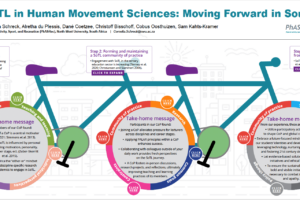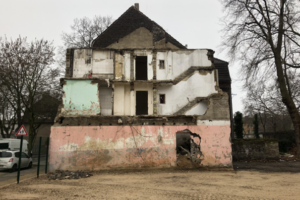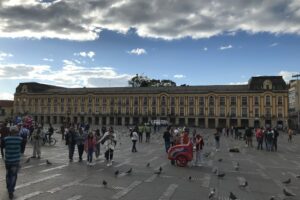SoTL’s “Multidisciplinary Boundlessness” and Advocacy
by Kiara Mikita
This post is in response to a call for ISSOTL blog posts highlighting SoTL advocacy and opportunities in the disciplines. My academic expertise is in sexual violence and how we talk about it. My disciplinary training is in sociology, and my methodological training is varied, but rests preferentially with qualitative methods. My research and teaching, very intentionally, has an advocacy bend to it – I want my work to be applicable, on the ground, importantly informed by anti-oppressive theoretical frameworks. So, the inter-, cross-, and transdisciplinary possibilities opened up by SoTL and the applicable advocacy goals that it makes possible are, for me, where SoTL and social justice are most brilliantly paired. In this way, I interpret advocacy as extending beyond supporting the application of SoTL within disciplines, but demonstrating SoTL’s boundless multidisciplinarity, and the social justice advocacy and opportunities this makes possible.
For example, some of my SoTL work is presently focused upon bringing researchers and community members together monthly to promote cross-disciplinary and cross-experiential conversation, build community, and ultimately generate transdisciplinary research and education priorities for sexual violence work on and off campus. My research invites academics, victim-facing professionals (e.g., counsellors, law enforcement/security, medical practitioners, crowns/legal, etc.), and students to sit at the table and engage in active learning activities that promote dialogue and facilitate community building. In our monthly gatherings, after engaging in various playful icebreakers, participants will be invited to take part in SoTL-informed exercises intended to diminish the “silo effect” that is characteristic of sexual violence work, where great work is being done within various disciplines, but in isolation, detached from and uninformed by one another.
Borrowing from threshold concepts, one session will invite participants to describe what concepts are essential and epiphanic to their descriptions of sexual violence when they teach, train, or talk to others about it – and to share these descriptions with those outside of their respective spheres. Participants will be invited to reflect upon how this extra-disciplinary and/or extra-experiential knowledge affects and strengthens what they already knew about sexual violence. Similarly, drawing upon signature pedagogies, participants will be invited to discuss the key habits, tools, and practices they use when ‘doing’ these threshold descriptions. Later, they will be invited to reflect upon how learning about divergent ways of teaching, training, and talking with others about sexual violence grows their content knowledge and pedagogical knowledge of sexual violence, as well as their awareness of how it is taken up outside of their respective spheres of experience.
Once participants have spent several sessions together, they will be invited to together contemplate transdisciplinary research and education priorities – priorities that are deemed relevant by and to all disciplines engaged in formal and informal sexual violence teaching and learning. This notion of transdisciplinarity is intentional, introduced as “an epistemological innovation to foster multi-perspectivity, context-sensitivity and stakeholder involvement” (Novy, Habersack, & Shaller, 2013) among groups that have historically worked in silos. Participants will be asked to identify the questions, tools, and topics that have the most impactful potential for learning about sexual violence, and that are collectively determined as most essential to study and share with others doing this work.
My sociological and qualitative training and my previous research experience engaging with practitioners working in sexual violence will help me hear the nuance and the themes in participants exchanges and in the material they produce throughout this series (e.g., minute papers and critical incident reports). Additionally, the “community in conversation” framework that I used to envision this study – an adaptation of Palmer’s “community of truth” (1998) – was inspired by a teaching and learning colleague whose background is in education. Likewise, the scaffolding of this series as a trajectory culminating in the establishment of priorities – this process of “integrated knowledge translation” – is an approach popular in health research, and one given shape by another teaching and learning colleague whose history is in nursing.
On the whole, while SoTL possibilities within my discipline of sociology are significant and varied (Kathleen McKinney recently posted an important snapshot of The Status of SoTL in Sociology), my SoTL advocacy emerges from its multidisciplinarity, and the way that my own work has flourished and been strengthened by it. While my curiosities will likely always be sociological in orientation, it is SoTL’s multidisciplinary boundlessness – and especially its “axiological domain” (Booth & Wollacott, 2017) – that I am most inspired by, and advocate most for the opportunities it makes possible.
Kiara Mikita, PhD
Postdoctoral Scholar, Scholarship of Teaching and Learning (SoTL)
Taylor Institute for Teaching and Learning | University of Calgary




